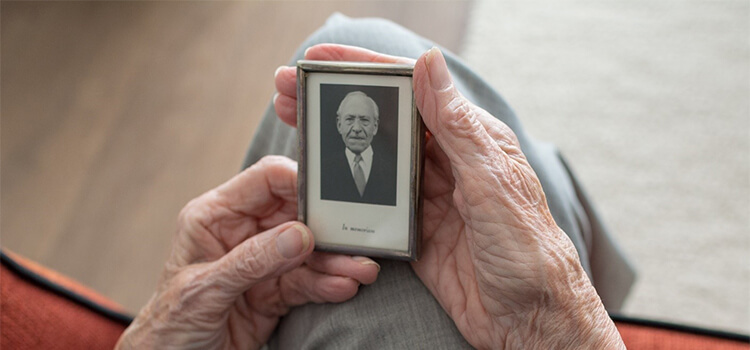Everything changes after the loss of a spouse or partner. Even if your spouse was ill for some time, their death still comes as a shock. There are few things more challenging than dealing with the aftermath following the death of a spouse. Often the early days are filled with grief and loss, and the world may feel like a huge weight on your shoulders. Please give yourself the proper time to grieve, and then realize that the new “normal” will involve some major financial changes, paperwork upon paperwork, and making the best possible decisions for your life going forward.
The surviving spouse will receive much unsolicited advice, some from well-meaning friends and family, and others trying to capitalize on the loss. For example, a widow or widower should expect phone calls from nursing homes, as you have become their target client. Keep in mind that your support network such as family members, friends, and professional advisors are the people you need now more than ever. After sorting through some of the recommendations, you will realize there are some things you must do immediately and others that you can delay. The following are things that can make the process easier and more manageable. Don’t overwhelm yourself. Make it a goal to tackle one task per day:
- Take a look at all your bank statements or statements from any financial institutions you hold accounts with. Any joint accounts you held with your previous spouse might get frozen. To avoid this, they should be retitled to your name only. If there are any accounts solely in your spouse’s name, transfer the funds and close those account.
- While reviewing those financial accounts, make sure you designate a new beneficiary (sometimes called pay on death designations) to someone other than your late spouse. It is a good idea to write a primary beneficiary as well as a contingent (back-up) beneficiary.
- Cancel any of your late spouse’s memberships and subscriptions that you may be paying for yearly or monthly.
- Revisit any insurance policies, such as car insurance, homeowner’s insurance, renter’s insurance, jewelry insurance, medical insurance, etc. and let them your spouse has passed away.
- Contact your late spouse’s employer and insurance company to check if you can claim any life insurance, retirement, or death benefits.
- Gather and organize documents such as birth, marriage and divorce certificates, titles to cars and real estate, statements for checking, savings, brokerage, and retirement accounts, and insurance policies.
- Organize your own bills and financial obligations. This time of your life is unsettling. Keep current on any recurring expenses such as credit card payments, house and car payments, insurance, homeowner’s association fees, and taxes to avoid late charges and damage to your credit rating. Setting up auto-payments may help you avoid late or missed payments, that may lower your credit score.
- Check if you qualify for inheritance rights or an elective share. In the state of Florida, surviving spouses qualify to receive up to 30% of their late spouse’s estate. (This is assuming there was never a prenuptial agreement executed). Note that the rules differ when it comes to your primary residence, or homestead property.
Lastly, and most importantly, consult an estate planning attorney. They will explain exactly what inheritance rights you have. Estate planning attorneys help sort out your late spouse’s estate, and help you go through probate, if needed. Additionally, they will guide you through the entire process step by step including creating an estate plan to fit your new lifestyle. If you are not sure what “estate planning” is, we can simplify it for you. An estate plan means writing on paper who gets your stuff and who is in charge when you no longer are. In the state of Florida, the most common forms of an estate plan are a Living Trust and a Last Will and Testament.
With the right people and right decisions, your transition to widowhood will be a gentler process. Please contact OC Estate and Elder Law at (954) 251-0332 or info@ocestatelawyers.com for a free consultation. We treat all our clients with patience, compassion, and strive to provide peace of mind. Our attorneys are fluent in English, Spanish, and Russian.
















